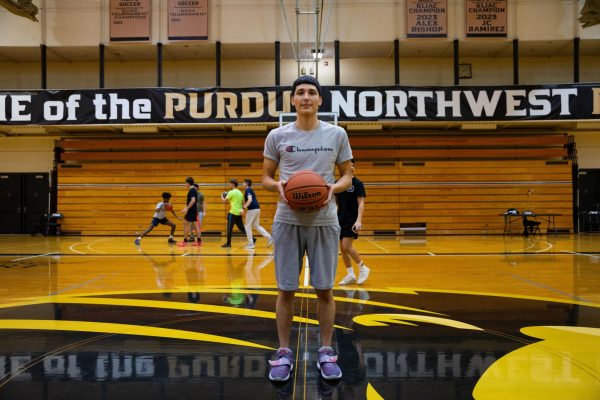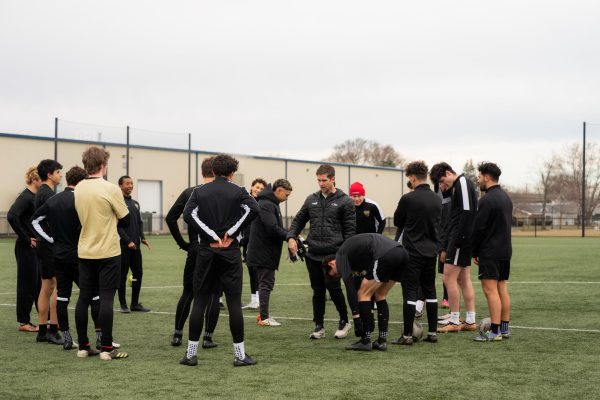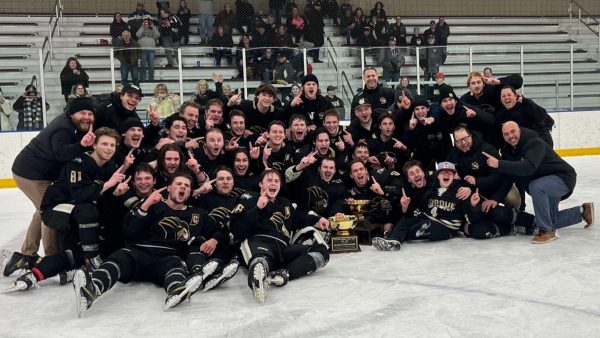A seat at the table: faculty gain input on athletic decisions
The creation of a new intercollegiate athletics committee was approved by the faculty senate on Jan. 20.
According to faculty senate document 16-02, “It is a committee that reports to the chancellor by the governing rules of the NCAA with input from selected faculty and senate representative.”
Geoff Schultz, vice chair of faculty senate, said that in addition to the necessity of the committee due to NCAA regulations, the committee was needed due to the flawed system of communication between the athletic department and the faculty senate. Schultz said that faculty had previously been blindsided by information pertaining to athletics decisions.
“We had no reporting mechanism back to the faculty, we weren’t really aware of what was going on with the budget and even things like practice times and students being away from classes due to games,” Schultz said. “Faculty were complaining in the senate that there was no place to really hash it out.”
The committee is made up of 14 members including two student-athletes, the chair-elect of faculty senate, three faculty senate representatives, two faculty members, one representative to the NCAA, two faculty administrators, two staff personnel, the athletic director, the senior women’s administrator and the academic compliance officer of athletics.
Schultz said that the creation of the committee will result in more communication due to it involving both administrators and faculty.
“I’m confident going forward that we are going to be okay,” Schultz said. “We are going to have a voice at the table now.”
Schultz said that negotiations occurred for significant amount of time relating to whether the faculty senate or chancellor Thomas Keon would oversight the committee. He said that the NCAA requires the committee to directly report to the chancellor but that the faculty and students involved will now be able to report back to their senates.
“It was a matter of selling it and compromising with the larger senate as to why it needed to be this way in order for us to have input,” Schultz said.
Schultz said the committee is a mixture of all the different interest groups that want oversight of athletics.
“It’s a good mix of people and I really think everyone on it is committed to making the NCAA transition work,” Schultz said. “The uniqueness of the committee is that there’s different groups reporting to different constituents,” Schultz said.
Schultz said administrative members of the committee were chosen by Keon and the non-administrative members were chosen out of a pool of candidates presented to Keon by a group of faculty members in the senate.
Prior to the creation of the IAC, PNW had an intercollegiate athletics committee made up of five members that functioned as a subcommittee of the student affairs committee.
Rick Costello, athletic director, said that the expansion of the committee is a positive thing for the university as it will increase communication with all the constituents on campus.
“There is a lot of good things to talk about and there’s certainly, like any dynamic organization, things we need to work on and get better,” Costello said.
According to FSD 16-02, the committee will “Provide guidance and faculty input on and monitor the budgeting process, and resources allocation, and expenditures of intercollegiate athletics.”
Costello said that he plans to provide information to the committee about what is going on in the athletic department from both an academic and athletic point-of-view.
“We [athletics] are part of the university. We will share what our visions are and what our goals are,” Costello said. “At the end of the day it really goes back to we want to be aligned with the university.”
On Feb. 16 the NCAA will visit PNW and meet with the newly established intercollegiate athletic committee.




